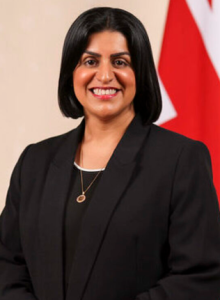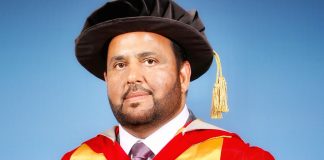I have often been critical of the way this country has treated its migrant communities. I have written about unfair media coverage, about hostile government policies, about the constant sense that Muslims are always being asked to prove their loyalty. For many years, it has felt as if the migrant community was seen more as a problem to manage than a partner in Britain’s success.
Those criticisms remain true. Islamophobia and racism are real, and in many ways it is growing. Young Muslims still face barriers when applying for jobs. Women in hijabs are still shouted at in the street. Counter-extremism policies have left many families feeling under suspicion, even when they have done nothing wrong. These are not opinions, but facts that cannot be ignored.
And yet, despite all of this, I find myself feeling something I have rarely felt before: hope. That hope comes from the historic appointment of Shabana Mahmood as the United Kingdom’s first Muslim and Pakistani Home Secretary. For the first time in our history, a Muslim woman sits in one of the most powerful offices in government.
This is not just a personal success story for Mahmood. It is a moment of pride for all of us. It tells Muslims across the country that their heritage, their faith, and their identity are not barriers to leadership. It shows that our children can aspire to the very top. For young Muslim girls especially, this is a message they have long needed to hear: that they can lead, that their voices matter, and that nothing is beyond their reach.

Image: shabanamahmood.org
For years, I have seen immigrant communities contribute to British life in every way. We run small businesses and large companies. We work in the NHS, often on the frontlines. We teach in schools, serve in the armed forces, and volunteer in our communities. We have given so much to this country. Yet, until now, very few of us have been allowed into the rooms where the biggest decisions are made. Mahmood’s rise to Home Secretary changes that picture.
Of course, we must be realistic. Representation alone does not solve everything. A Muslim in a senior role will still face the same tough choices as anyone else. The Home Office is one of the hardest departments to lead. It deals with immigration, policing, and national security, areas where Muslims have often felt targeted or mistrusted. Mahmood will not be able to please everyone, and she should not be expected to. Her job is to serve the whole country, not just one group.
But her presence matters. She knows, from her own life, what it means to grow up Muslim in Britain. She understands the feeling of being judged by your name or your faith. She knows the pride and the pain that come with our identity. That awareness will not disappear when she walks into her office. It will shape how she listens, how she decides, and how she leads.
She will face challenges. Some will expect too much, hoping she can undo years of unfair policies overnight. Others will criticise her simply because she is Muslim, questioning whether she can be “tough” enough on issues like terrorism or immigration. She will be under pressure from both sides. But in that tension lies something important: the reality of modern Britain. A Britain where identities overlap, where loyalties are complex, but where belonging is real.
For me, the symbolism is powerful. I have spent years pointing out the failures of this country when it comes to Muslims and immigrants. Today, I must also recognise its progress. Mahmood’s appointment shows that things can change, however slowly. It shows that the doors of power are not fully closed to us. It shows that our community is not only part of Britain’s past and present, but also of its future leadership.
This moment should inspire us. It should encourage young Muslims to step forward, to join political parties, to serve on local councils, to consider careers in public service. Change does not come from one person alone. Mahmood has opened a door, but it is up to the rest of us to walk through it. We need more minority people in parliament, in the civil service, in the media, and in every corner of public life.
I will continue to criticise Britain when it fails its citizens. That is my duty, as someone who cares deeply about justice. But today, I also want to celebrate. Shabana Mahmood’s appointment is a moment of pride, a moment of history, and above all, a moment of hope.
For the first time in my lifetime, I can look at the Home Secretary and see someone who understands, even in part, what it means to live as a Muslim in this country. That is not everything, but it is not nothing either. It is a reminder that progress is possible and that the story of Britain belongs to us too.




